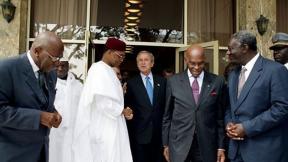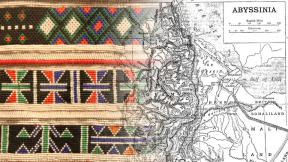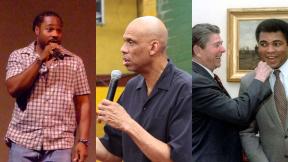
“History repeats itself but in such cunning disguise that we never detect
the resemblance until the damage is done.”
Sydney J. Harris, American journalist
There are many who decry that history textbooks in the United States paint a picture of our nation featuring White men in the best possible light, often at the risk of promoting a narrative that is either fantasy-like or missing the detail that makes it factually untrue. This is certainly the situation with the history of racism and oppression of African American people and related to the institution of slavery.
Case in point - the matter of Juneteenth. If you don’t know what that is then you have happened into a good example of whitewashing. Most elementary school textbooks celebrate the fact that Abraham Lincoln enacted the Emancipation Proclamation on January 1, 1863 and that act freed all African American slaves. This is not entirely true, however. Lincoln used the power of the Executive Order but it would take several years for slaves to be set free from the plantations, particularly in the South. Remember, the Civil War was still raging at that time and wouldn’t come to an official end until April 9, 1865, with the surrender of Confederate General Robert E. Lee at the Appomattox Court House in Virginia.
What does that have to do with Juneteenth? Juneteenth is the national celebration of the day – June 19, 1865 – when the last African Americans held in bondage in the state of Texas learned that they had been freed. Compare these dates. That was 30 months, nearly two and a half years after the Emancipation Proclamation! The news was delivered by Union General Gordon Granger in what is known as Order No. 3. There were a number of theories about why the communication was delayed including that it wasn’t delivered until the cotton harvest was complete.
Furthermore, while No. 3 declared the “absolute equality of rights and property between former master and slaves,” it went further to recommend that the newly freedmen “remain at their present homes and work for wages.” That was neither attractive to the slave nor the master. Slaves moved northward largely in search of family in what was later referred to as “the scatter.” And slaveholders took deadly steps to retain their slaves, some resorting to violence and murder.
Black men and women interested in celebrating their newfound freedom on the anniversary of Juneteenth were faced with another stark reality – they owned no land to host a gathering and laws were quickly changing in the South to prohibit them from using public spaces. A 10-acre parcel in Houston, Texas, known as Emancipation Park, was purchased by four former slaves in 1872 for the purpose of holding the annual celebration and, until the 1950s, was the only public park and swimming pool in Houston open to African Americans.
Each of us should be intent on expanding our knowledge and understanding to better ourselves and our children. Allah reminds us in the Quran in Surah Hujurat:
“Oh people, We created you all from a male and a female, and made you into nations and tribes so that you may know one another. Verily the noblest of you in the sight of Allah is the most God-fearing of you. Surely Allah is All-Knowing, All-Aware.”
(4Surah Al-Hujarat, 9:13)
Why is Juneteenth important for us today? When there are not accurate records of our past, history becomes largely “his-story,” stifled by the perspective of just one set of eyes and ears. In the U.S., we must go beyond the classic history texts to hear the voices that represent many different perspectives of the very same events. This is recognized in the work that is in front of us to make Black Lives Matter. And this is how we make change, first to seek knowledge, then to expand understanding in our hearts, and then to eradicate unjust policies and practices in our society.
Juneteenth has become a catalyst for celebrating Black achievement and examining what we need to do to eradicate racism in our country. This June 19, take an assertive step to learn more about the past and where we need to head into the future. Here are some good places to start:
A People’s History of the United States by Howard Zinn (also in a young readers form)
Before the Mayflower: A History of the Negro in America 1619-1962 by Lerone Bennett
Lies My Teacher Told Me: Everything Your American History Textbook Got Wrong by James Loewen
Stamped from the Beginning: The Definitive History of Racist Ideas in America by Ibram X. Kendi
There is a River: The Black Struggle for Freedom in America by Vincent Harding
(And then check out another event that has also been overlooked in our history – the largest massacre of African American people that took place in the Greenwood District of Tulsa, Oklahoma, also known as Black Wall Street, in 1921).
Zahirah Lynn Eppard is Sound Vision’s Director of Religious Education.








Comments
Black History
More info re: Black History
Location
Add new comment